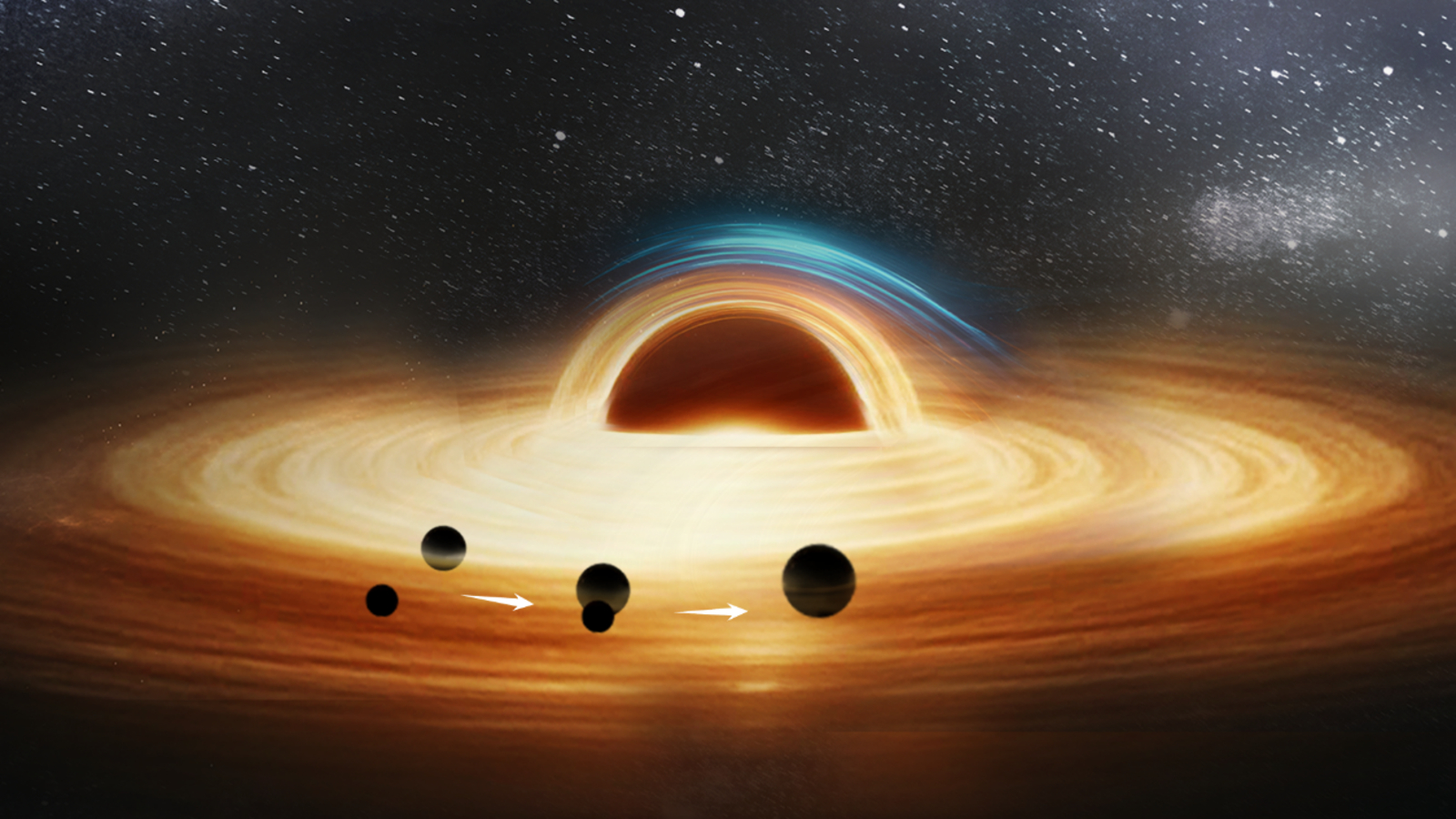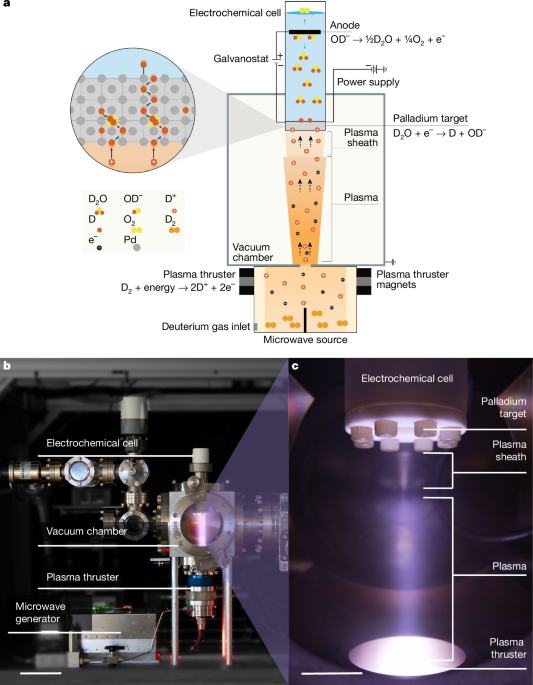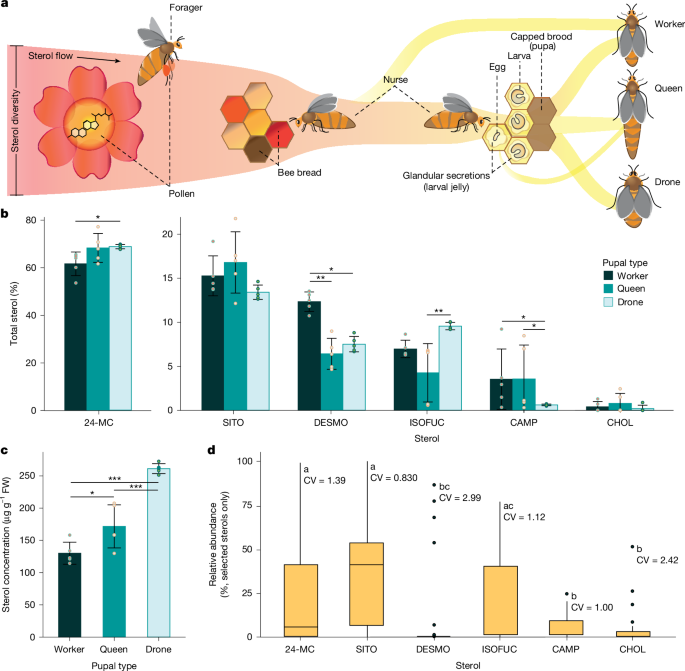The accelerating rise in carbon dioxide (CO2) emissions caused by human activity is pushing the planet toward a potential mass extinction, as highlighted in an eye-opening Guardian article published on August 19, 2025. The research features insights from MIT mathematician Daniel Rothman, who delves deep into the Earth’s history, explaining how rapid CO2 increases have triggered mass extinctions in the …
Read More »Science
Scientists think they detected the first known triple black hole system in the universe — and then watched it die
Chinese astronomers may have discovered a never-before-seen triple black hole system. The team identified this triplet, which is locked in a complex “waltz,” after spotting a hidden supermassive black hole lurking in the background of a peculiar gravitational wave event first detected six years ago. In 2019, the U.S.-based Laser Interferometer Gravitational-Wave Observatory (LIGO) detected a series of faint ripples …
Read More »Electrochemical loading enhances deuterium fusion rates in a metal target
Materials Potassium carbonate (K2CO3, 99%) was purchased from Thermo Fisher Scientific. K2CO3 was kept in a Napco 5831 vacuum oven at 120 °C for at least 24 h to eliminate the residual water. Deuterium oxide (D2O, 99.9%) was purchased from Cambridge Isotope Laboratories and used as received. Iridium wire (0.5 mm, 99.95%) was obtained from Taobao. Ag/AgCl reference electrodes (CHI111) were purchased from …
Read More »Engineered yeast provides rare but essential pollen sterols for honeybees
Strains, culture conditions and chemicals Escherichia coli strain DH5α was used for plasmid construction. E. coli was grown at 37 °C and 300 r.p.m. in lysogeny broth (LB) liquid medium and at 37 °C on plates of LB solid medium supplemented with 20 g l–1 agar. Ampicillin was supplemented at a concentration of 100 mg l–1 for plasmid selection. The Y. lipolytica W29 strain (MATa, Y-63746 ARS Culture Collection, …
Read More »The latest on BREC’s delayed 2023 state audit
Canoeists can paddle the lake at BREC’s Greenwood Community Park which includes a café and kayak and canoe rentals. (Tim Mueller) External auditors have issued an unmodified opinion on BREC’s 2023 financial statements as the agency works to complete its delayed annual state audits. EisnerAmper issued the opinion, which … Already an INSIDER? Sign in. Continue reading …
Read More »Radio Astronomers Find Weird Object in Nearby Galaxy That Stands Out Against the Entire Sky
“Punctum” may sound like type of punctuation, but to some scientists, it constitutes what may be a brand new type of cosmic object. In a new interview with Gizmodo, Elena Shablovinskaya, a radio astronomer at Chile’s Universidad Diego Portales (UDP) and Germany’s Max Planck Institute who led the team behind the find, waxed prolific about the bright dot she and her …
Read More »NASA’s Psyche Images Earth and Moon
Scientists on the imaging team, led by Arizona State University, captured multiple long-exposure (up to 10-second) pictures of the two bodies, which appear as dots sparkling with reflected sunlight amid a starfield in the constellation Aries. The observations help the team determine how the cameras respond to solar system objects that shine by reflected sunlight, just like the Psyche asteroid. …
Read More »Just a moment…
Just a moment… Enable JavaScript and cookies to continue This request seems a bit unusual, so we need to confirm that you’re human. Please press and hold the button until it turns completely green. Thank you for your cooperation! Press and Hold Press and hold the button If you believe this is an error, please contact our support team. 209.74.74.26 …
Read More »Supernovas are hard to detect. Scientists just found a way to spot them hours after they explode
When you buy through links on our articles, Future and its syndication partners may earn a commission. Artist’s concept of a supernova. | Credit: Mark Garlick/Science Photo Library/Getty Images The early stages of a supernova explosion are revelatory in what they can reveal about stars that go boom. But while catching them immediately after they detonate has proven largely elusive, …
Read More »Just a moment…
Just a moment… Enable JavaScript and cookies to continue This request seems a bit unusual, so we need to confirm that you’re human. Please press and hold the button until it turns completely green. Thank you for your cooperation! Press and Hold Press and hold the button If you believe this is an error, please contact our support team. 209.74.74.26 …
Read More »






